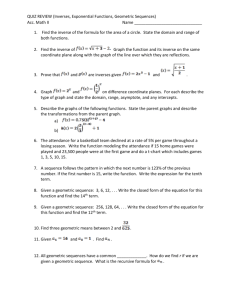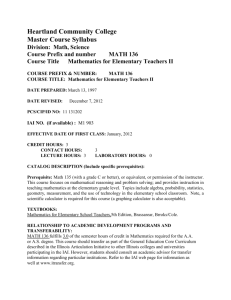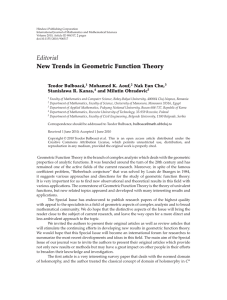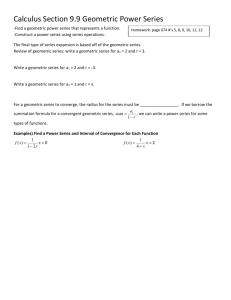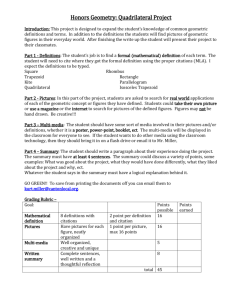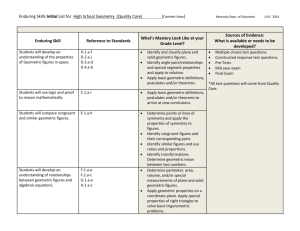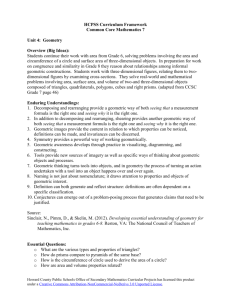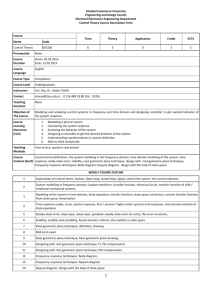A Framework for the Geometric Habits of Mind
advertisement
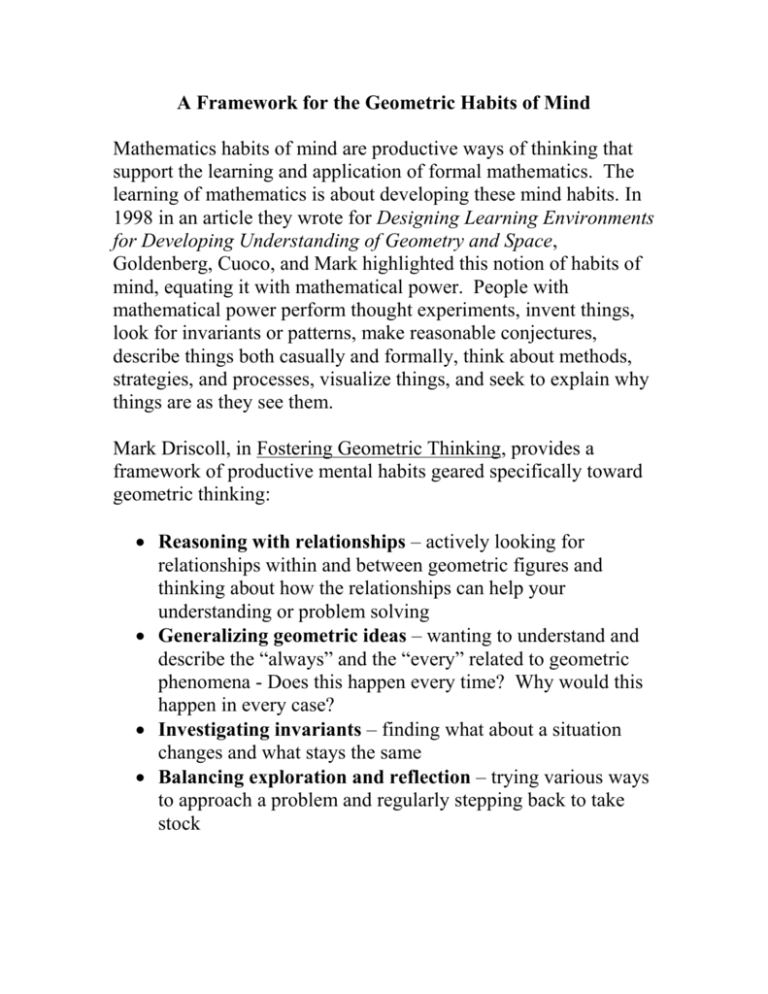
A Framework for the Geometric Habits of Mind Mathematics habits of mind are productive ways of thinking that support the learning and application of formal mathematics. The learning of mathematics is about developing these mind habits. In 1998 in an article they wrote for Designing Learning Environments for Developing Understanding of Geometry and Space, Goldenberg, Cuoco, and Mark highlighted this notion of habits of mind, equating it with mathematical power. People with mathematical power perform thought experiments, invent things, look for invariants or patterns, make reasonable conjectures, describe things both casually and formally, think about methods, strategies, and processes, visualize things, and seek to explain why things are as they see them. Mark Driscoll, in Fostering Geometric Thinking, provides a framework of productive mental habits geared specifically toward geometric thinking: Reasoning with relationships – actively looking for relationships within and between geometric figures and thinking about how the relationships can help your understanding or problem solving Generalizing geometric ideas – wanting to understand and describe the “always” and the “every” related to geometric phenomena - Does this happen every time? Why would this happen in every case? Investigating invariants – finding what about a situation changes and what stays the same Balancing exploration and reflection – trying various ways to approach a problem and regularly stepping back to take stock


